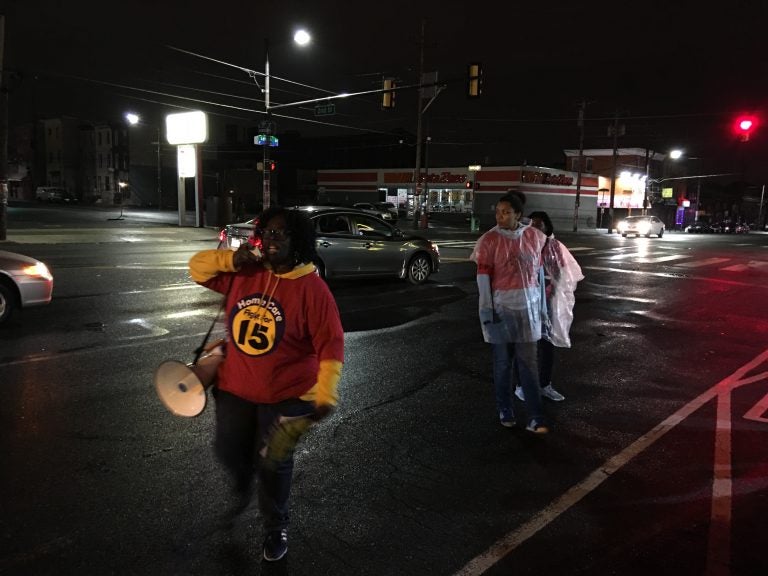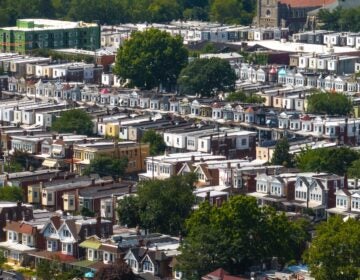Demonstrators go inside McDonald’s, tell workers to go on strike right now
Listen
Fast food
As a pre-dawn light rain fell on North Philly, dozens of fast food and home health care workers stood their ground outside of the McDonald’s 2nd Street & Lehigh Ave. this morning demanding a higher living wage and better benefits.
The protest was a part of the nationwide “Fight for 15” protests that are being held from coast to coast, including in New York, Detroit, Chicago, and Los Angeles.
Fight For 15 started as a group of fast food workers and has since expanded to include members of the various service industries including airport workers, maintenance staffs, and home health care workers all lobbying for a higher living wage starting at $15 per hour.
Democratic presidential candidate Bernie Sanders ran on the platform and Hillary Clinton said minimum wage should be increased to $12 and eventually bumped to $15. Donald Trump has been both for and against raising the minimum wage at various points since he started his presidential campaign, citing that if wages were increased, jobs would be lost.
Flanked by a drum line, the protesters marched through the McDonald’s drive-thru lane and eventually into the restaurant, asking patrons to put down their coffee and join them.
The #FightFor15 protesters have moved inside of the @McDonalds on 2nd & Lehigh in N. Philly pic.twitter.com/V88bcMTLhs
— Jay Scott Smith (@JayScottWHYY) November 29, 2016
“You have the right to go on strike!,” the protesters shouted as customers sat at tables calmly eating breakfast sandwiches. “McDonald’s cannot fire you! If they do, there is a lawsuit. We have lawyers ready. They are ready to fight for you.”
Outside of the restaurant, members of the Caucus of Working Educators — a group affliliated with the Philadelphia Federation of Teachers union– along with a number of home health care workers as well as some of the city’s Uber drivers, were leading chants.
Terry Williams is one of those Uber drivers. He currently has a full-time job but drives to supplement his income. He says low wage workers face financial peril that people either don’t understand or refuse to understand.
“When you have to start trying to look at all your bills and decide who not to pay who you can try to get an extension from — and that becomes the regular thing you have to do for month to month, week to week — there’s something wrong with that,” Williams said. “The people who need to address it don’t have that problem so they’re indifferent to it.
“The only way that we can do anything is that we have to make our voices heard,” he added. “We have to stand together because it’s not just any one particular industry. It’s industries across the board.”
For Antonio Bowser, who has worked in home health care for 11 years, he is all for joining the “fight” as all of the workers have a specific goal.
“More money,” Bowser said flatly, “you know what I’m saying and that’s the bottom line.” He feels that all low wage workers have been largely ignored and that the system is weighted against people like him recovering.
“I’ve been doing this for 11 years and I have never had a vacation — paid vacation,” he said. “I have never had paid time off. I have never had a paid day off.
“I just don’t get the system where you guys can make billions of dollars and not pay us health care,” he added. “I don’t have health care; I have to go through public assistance to get health care. It’s not right and it’s not fair.”
WHYY is your source for fact-based, in-depth journalism and information. As a nonprofit organization, we rely on financial support from readers like you. Please give today.




